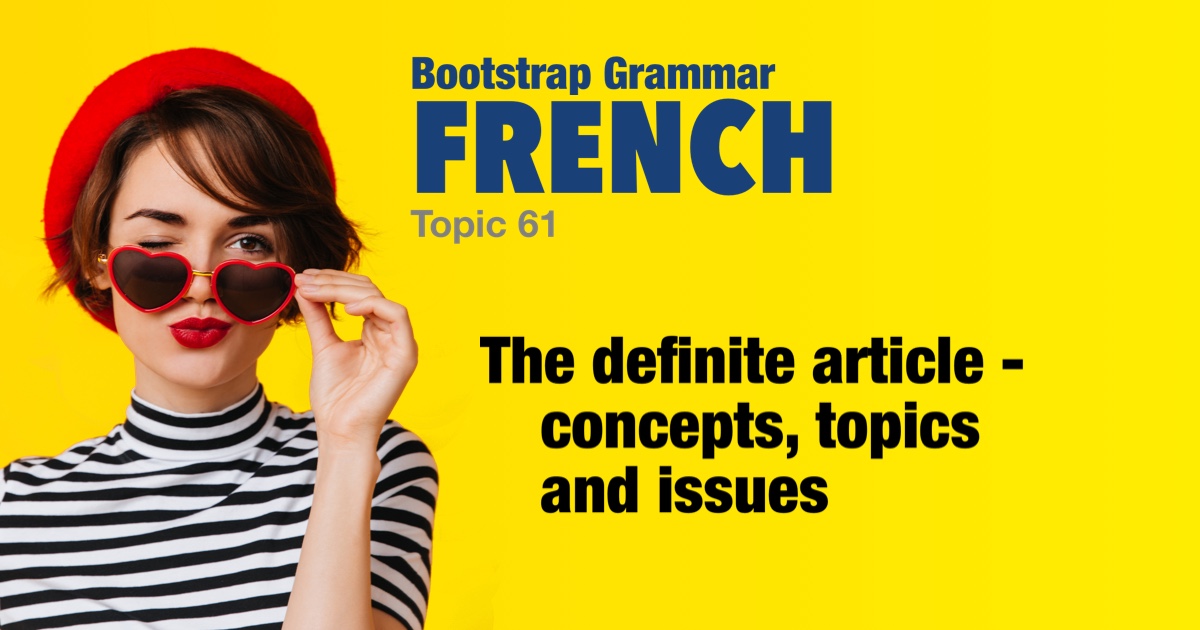French grammar - The definite article - concepts, topics and issues |
|||
|
|||
The definite article in French is a little different than in English: • General concepts - Definite articles are used to talk about a noun or group of nouns in a general sense or as a concept or notion. -- In English we sometimes use the plural to do this. For example 'Green beans are good' or 'I like dogs'. • Topics and Issues - Abstractions, politics, school subjects, and languages all need a definite article in French. |
| Examples: | |
|
Les haricots verts sont bons.
Green beans are good.
|
|
|
L'or est cher.
Gold is expensive.
|
|
|
J'aime bien faire de l'auto-stop.
I quite like hitchhiking.
|
|
|
Il parle très bien le français.
He speaks French very well.
|
|
|
Je parle mal l'italien.
I speak Italian badly.
|
|
|
Il aime les mathématiques.
He loves mathematics.
|
|
|
Il parle de la loi.
He is speaking about the law.
|
|
|
J'aime regarder le rugby et le football.
I like to watch rugby and football.
|
|
|
L'eau est bonne pour la santé.
Water is good for (one's) health.
|
|
|
Je n'aime pas le fromage de chèvre.
I don't like goat's cheese.
|
|
|
Ils aiment les oignons, mais pas l'ail.
They like onions but not garlic.
|
|
|
En général, les Français sont sympathiques.
The French are friendly.
|
|
|
La patience est une qualité utile.
Patience is a useful quality.
|
|
|
Elle n'aime pas du tout le froid.
She doesn't like the cold at all.
|
|
|
J'aime le théâtre, mais je préfère le cinéma.
I like the theater but I prefer the cinema.
|
|
|
La vie est difficile sans argent.
Life is difficult without money.
|
|
|
La France fait partie de l'Europe.
France is part of Europe.
|
|
|
C'est la vie.
That's life. |
|
 |
|


 Referring to
Referring to 
